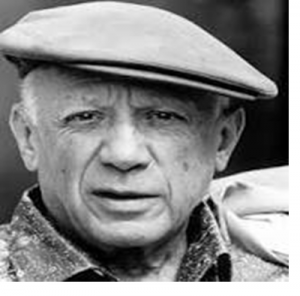Don’t Make The Picasso Mistake
 Pablo Picasso died on April 8th, 1973 at the advanced age of 91. Not only did this date mark the end of arguably the greatest artist of the 20th century, but also started a long legal battle because he died without a Will. Until 2015, various claims for his massive estate have been grinding a long drawn litigation battle in France. Apart from the extensive property owned by him, hundreds of unpublished and published artworks were also the subject of much interest.
Pablo Picasso died on April 8th, 1973 at the advanced age of 91. Not only did this date mark the end of arguably the greatest artist of the 20th century, but also started a long legal battle because he died without a Will. Until 2015, various claims for his massive estate have been grinding a long drawn litigation battle in France. Apart from the extensive property owned by him, hundreds of unpublished and published artworks were also the subject of much interest.
Picasso left behind legitimate and illegitimate children, legitimate grandchildren and more than one partner. To add to the mess, his employees and coworkers (drivers, assistants, students, agents etc.) also felt they that they deserved a share of his fortune.
Most financial institutes will agree that it is very difficult to put an exact value to art, especially works that have never been bought or sold before. Various agencies put value to his estate ranging anywhere between $260 million to $1 billion. Over and above the physical works, lay the legal power of authorizing Picasso’s works that might be discovered in the future.
Another point of conflict was the commercial use of the Picasso name itself. His legit son Claude Picasso and granddaughter Marina Picasso were for years in a legal tussle about whether or not the name can be used as a branding and marketing tool for commercial products, and if so then who will reap the benefits from such a sale of copyrights. Marina Picasso also sold the reproduction rights of hundreds of Pablo Picasso’s works that she owned. Paloma Picasso has been selling jewellery and perfumes under that Picasso brand name.
Exhibitions around the world that house Picasso paintings continue to generate income for the artist, that could go to an unsettling number of parties. Many believe that he didn’t leave behind a Will because he was conflicted himself about who should be heir to his wealth.
Succession is often a topic that is labelled either morbid or awkward to discuss, for obvious reasons. But leaving behind a Will is an essential, even if you are not an artistic genius. It will save your heirs time, effort and financial resources, which would have been spent in litigation battles. Succession of large estates that will yield future income (dividends, interest) and appreciation (capital gains) can be made tax effective with the right financial advice. It is also important to note, that registering a Will, forming a trust fund and nominating an executor is a very uncomplicated and a relatively cheap process in today’s age of services.
A Will is not a permanent document, but one that can be changed as per your wishes as long as you live. A Will is not only something you should worry about post-retirement, but at every stage of life (could be to include your non-marital partner or to nominate guardians for your young children)f. A Will is not something only the very wealthy need, because no matter the size of the estate, the heirs will be inconvenienced just as much without a Will. So don’t make the Picasso mistake, write your Will.
